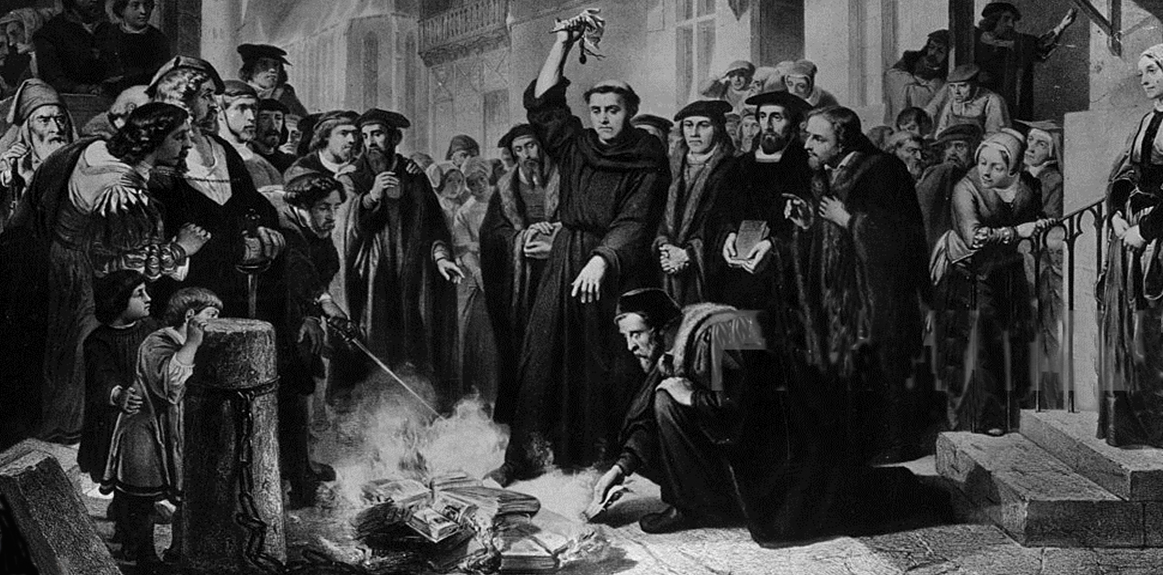In a little more than a month we will be celebrating 500 years since Martin Luther published his Ninety-Five Theses, thus splintering Catholicism and giving birth to the Protestant Church. Why is that event so important in history?
The Reformation rescued the Gospel from a thousand years of captivity to Catholicism and restored the Gospel to its rightful place. While the Reformation didn’t reform the Church completely, it did pave the way for significant changes in the Church that continue today.
While there had been significant attempts to reform the Church before Luther by men such as John Hus and John Wycliffe, it is widely acknowledged to have started when Luther, in his Ninety-five Theses, began criticizing the sale of indulgences and questioning the Pope’s authority in light of the Scriptures. It is clear that Luther never envisioned the response to his Ninety-five theses; it caused an uproar throughout all of Christendom that resulted in a religious revolution. And it cast Luther in a role he had never anticipated nor sought after; the ipso facto leader of what was arguably the most powerful religions revolution the world has ever known.
How should we celebrate Reformation Day this October 31st? One way is to treat it as a historical event, remembering Luther the man and the changes that occurred when he dared to question the religious authorities of his day. There have been several movies about Luther’s life, depicting the exciting events that brought him to the forefront, a role he neither sought after nor desired. God knows the story is fascinating and too few of us are acquainted with it. So by all means, let us continue to tell the story.
But to merely remember the history this coming Reformation Day would be a loss. Rather, we should recount the major theological issues that brought it about, to begin with for they are still relevant issues the Church faces in our day. For the Reformation was essentially a struggle for the recovery of the Gospel, and that is still the struggle the Church deals with today. It is a struggle that each generation of the Christian Church must deal with.
The fact that a Reformation was needed in the first place is evidence of this fact. For the truth is, the Reformation was needed because the Church had strayed from the Gospel for a thousand years. And the fact that it did stray demonstrates why the Reformation must be an ongoing reality: The Gospel of the grace of God-centered in the fact that sinful men and women are utterly helpless to do anything to save themselves is foreign to us. For that reason, we must hear it again and again or else we are tempted to smuggle our own works into it. Luther and the other Reformers realized that the Catholic Church had corrupted the Gospel in a sea of works, thus denying its core issue; that men and women are saved by grace through faith alone.
The Reformation of five hundred years ago was the attempt to correct that. And it is every bit as needed today as it was five hundred years ago. Even in those churches today that presume to understand salvation by grace through faith alone there is what I have called the ‘unsettled state of many believers.’ Many believers carry around a low-grade guilt when it comes to their relationship with God, feeling as if they are constantly falling short. Drop into most Protestant churches on any given Sunday, and you are apt to hear more about what people must do for God rather than what God has done for us through the finished work of his glorious Son. And the levels of personal growth in sanctification give evidence that many saints are not pursuing it through the justifying grace of God.
Next month, when celebrating 500 years of Reformation, it is a good time to examine your understanding of the Gospel. Luther and the other Reformers summarized their teaching by the five ‘Solas,’ a Latin term meaning ‘alone.’ Sola Scriptura (scripture alone) meant that the Bible alone is our highest authority. Sola Fide (Faith alone) means that we are saved through faith alone in Jesus Christ. Sola Gratia (grace alone) means we are saved by the grace of God alone. Sola Christus (Christ alone) means that Jesus Christ alone is our Lord, Savior, and King. And Sola Deo Gloria (to the glory of God alone) means that we live for the glory of God alone.
I would encourage leaders to preach through these Solas and talk about them in small group settings. Use the occasion of the five hundredth year of Reformation to spend considerable time reviewing these things. And in doing so, let’s ask the Father that, as he once ignited the Church through Gospel preaching five hundred years ago, so also, may he ignite Gospel flames throughout the worldwide Church of God. Sola Deo Gloria.





0 Comments